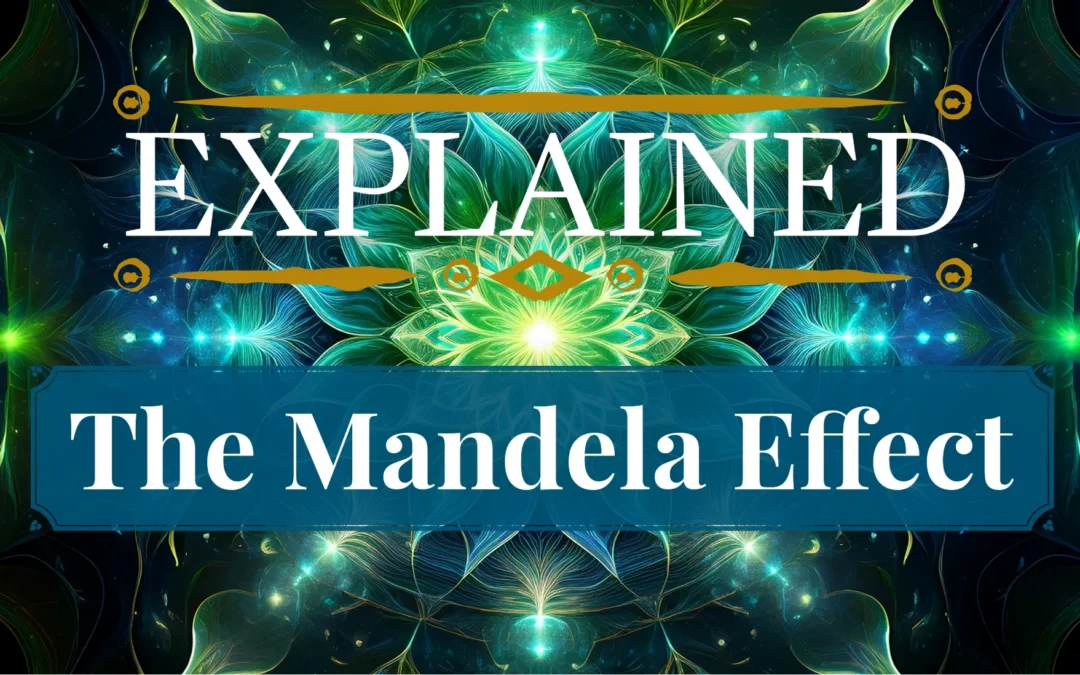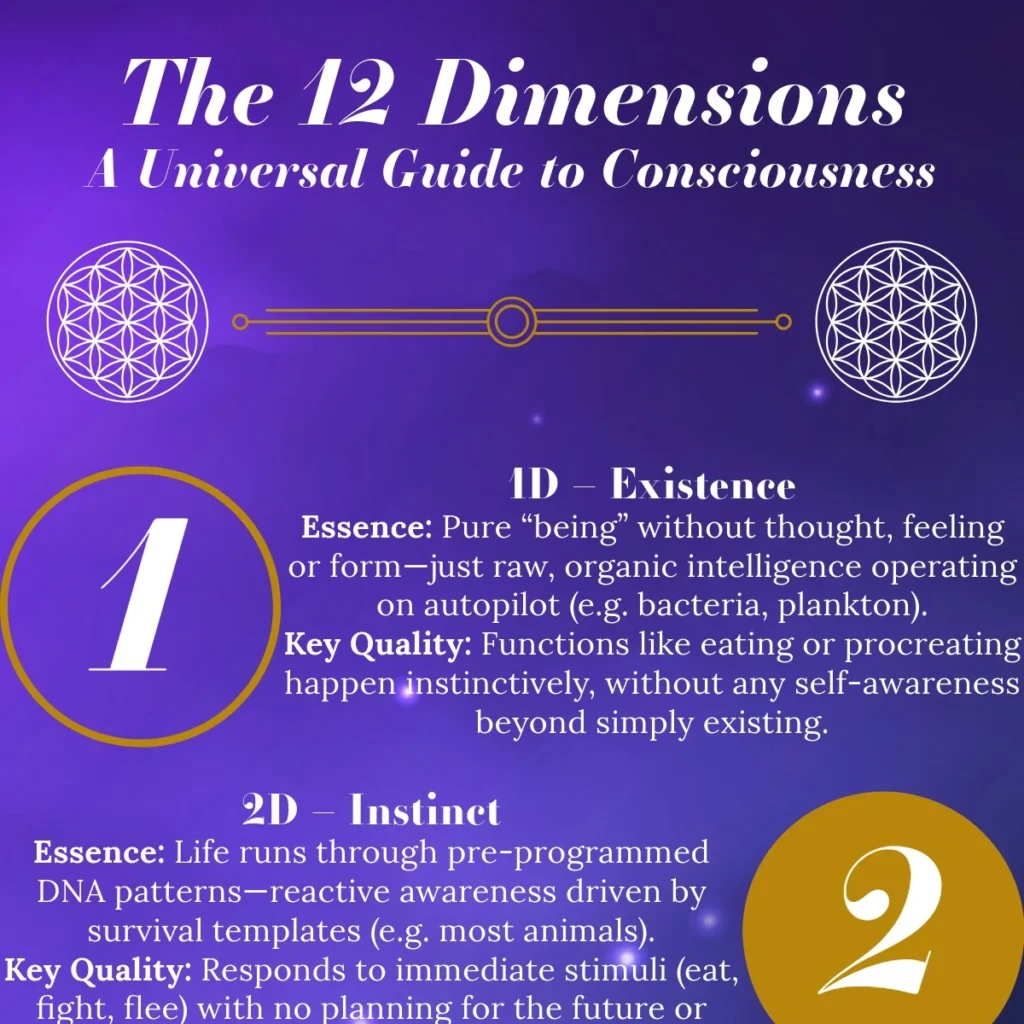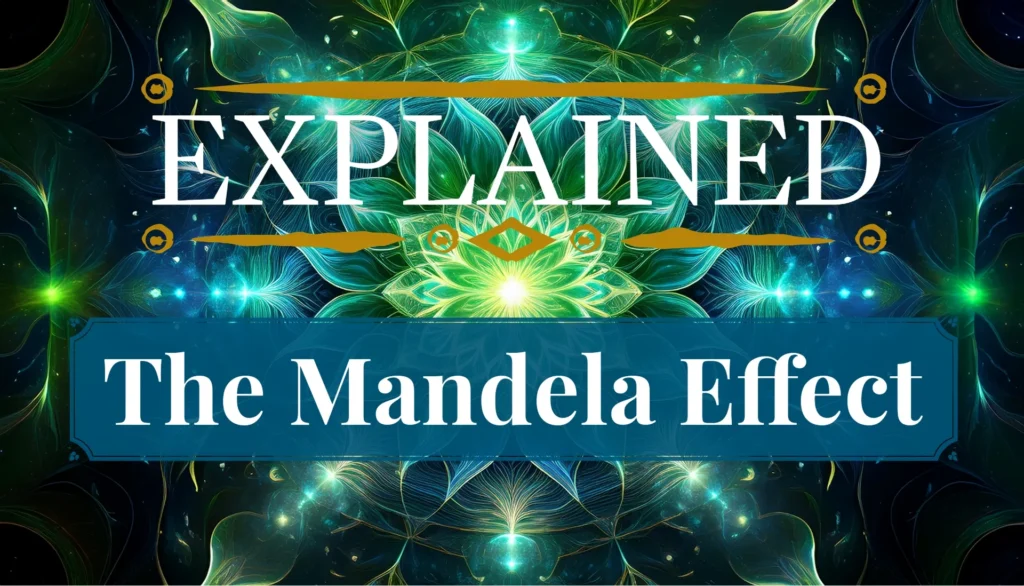Video/Audio Transcript
This is not an exact Caption, rather a reader-enhanced version of the Video for better understanding
Introduction: What Is the Mandela Effect?
To explain the Mandela Effect, I began by asking ChatGPT for its interpretation—and even without a detailed prompt, it returned three interesting theories. But before we dive into those, let’s explore what the Mandela Effect reveals about memory, reality, and the human mind.
The Nature of Memory and Perception
At its core, the Mandela Effect is a discrepancy in memory. One person remembers an event happening one way, another remembers it differently. This is common in everyday life—like a family dinner where one person remembers a blue plate being dropped, another says it was white, and someone else insists it was actually a cup.
These different versions of the same moment often lead to conflict, especially when egos get involved. Who's right? The truth is, perhaps everyone is, from their perspective.
Why Memory Isn’t Always Reliable
We live in a time of science and evidence-based thinking. Science values reproducibility—but the human experience is anything but consistent. Once you begin to awaken spiritually, you realize that everything is fluid, changing, and energetic. Memory is not a file in a cabinet. It's a reflection of your consciousness in that moment.
Why Is It Called the Mandela Effect?
The term was coined after many people remembered Nelson Mandela dying in prison in the 1980s. But historically, he was released in 1990 and died in 2013. This widespread “false memory” became the spark for the Mandela Effect phenomenon.
Famous Mandela Effect Examples
The Monopoly Man: Many recall him having a monocle—but he never did.
Star Wars: The iconic line “Luke, I am your father” is actually “No, I am your father.”
Who’s right? Are these just memory mistakes—or signs of something deeper?
The Invitation to Acceptance and Multiple Truths
This phenomenon shows us how rigid humans can be when confronted with different views. Throughout history, differences in beliefs—religion, politics, ideologies—have led to war. But the Mandela Effect asks us to embrace diverse perceptions of reality instead of fighting over them.
The Right to Believe Differently
Everyone has the right to believe what they want. If someone sees pink unicorns in the sky, that’s their experience. Just because I don’t see it doesn’t mean it’s false. Reality is subjective. The Mandela Effect reminds us to honor that subjectivity.
Truth Is Not Fixed—It Flows
Since childhood, I’ve been seeking truth. But I've learned that truth evolves. It flows like a river. Trying to pin it down stops its movement. That desire to lock truth into one place comes from fear and ego.
The Three Main Mandela Effect Theories
1. Memory Errors
The mainstream explanation says memory is unreliable and easily manipulated. While true to some extent, it doesn’t account for the deeper metaphysical implications.
2. Parallel Universes
Some believe the Mandela Effect is evidence of alternate realities bleeding into each other—a concept consistent with multiverse theories and quantum consciousness.
3. Timeline Shifts or Glitches
My personal view aligns most with this: the Mandela Effect as a sign of timeline shifts or ascension-related changes in perception. Like déjà vu, it signals multidimensional awareness—a glitch in the matrix, so to speak.
You Create Your Reality
This phenomenon points us toward a greater truth: you create your own reality. Your memories, perceptions, and beliefs shape your world. As a child, I intuitively knew the story of the pyramids being tombs wasn’t true. Later, I understood they were built through telekinesis and consciousness—something mainstream science can’t yet explain.
Spiritual Powers and Fictional Clues
From anime to superhero stories, “superpowers” are metaphors for our own potential. We’re drawn to these stories because they remind us of who we really are. The Mandela Effect is one more breadcrumb on the path to remembering our divine nature.
Everyone’s Reality Is Unique
Even if two people eat the same meal and agree it tastes great, their experience will still be different. Every soul is unique. No one in the universe is exactly like you. That’s why suppressing your truth to conform is so damaging.
The Danger of Conformity and Groupthink
When you conform to the majority out of fear or a desire to fit in, you abandon your uniqueness. Society encourages this from an early age—but true awakening begins when you reclaim your soul’s voice and express your divine self fully.
Mainstream vs. Side Streams
In today’s world—2025 and beyond—what we call “mainstream” is simply the majority’s chosen version of reality. Side streams like Flat Earth or alternative science aren't inherently wrong; they’re just different perspectives.
Science itself has reached a consciousness ceiling. Many modern breakthroughs labeled “science” are actually spiritual in nature, pointing beyond material reality.
Conclusion: The Mandela Effect as a Spiritual Invitation
To summarize:
The Mandela Effect is the experience of differing perceptions of reality across time.
Since time is not linear, our experiences of memory and truth shift. The Mandela Effect shows us that:
Time is multidimensional.
Memory is subjective.
Truth is fluid.
Perception creates experience.
If you remember something differently than the collective, don’t doubt yourself. That experience is real—for you. And your reality is just as valid as anyone else’s.






